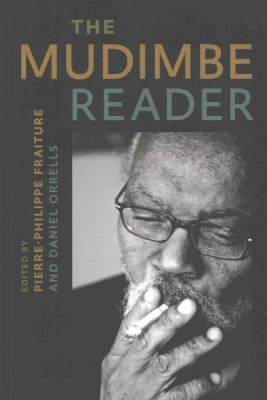| The Mudimbe Reader Contributor(s): Mudimbe, V. Y. (Author), Fraiture, Pierre-Philippe (Editor), Orrells, Daniel (Editor) |
|
 |
ISBN: 0813939119 ISBN-13: 9780813939117 Publisher: University of Virginia Press OUR PRICE: $34.65 Product Type: Paperback - Other Formats Published: October 2016 |
| Additional Information |
| BISAC Categories: - Literary Criticism | African - Literary Collections | Essays |
| Dewey: 844.914 |
| LCCN: 2016002828 |
| Physical Information: 0.7" H x 6" W x 9" (0.90 lbs) 280 pages |
| Descriptions, Reviews, Etc. |
| Publisher Description: A prominent francophone thinker and writer from sub-Saharan Africa, V. Y. Mudimbe is known for his efforts to bridge Western and African modes of knowledge and for his critiques of a range of disciplines, from classics and philosophy to anthropology and comparative literature. The Mudimbe Reader offers for the first time a ground-breaking work of modern intellectual African history from this essential postcolonial thinker, including new translations of essays previously unavailable in English. Constituting an intellectual history of the humanities in the late twentieth century from an African intellectual's point of view, The Mudimbe Reader provides an introduction and a comprehensive bibliography that frame four thematic gatherings of Mudimbe's writings. Part 1 bears witness to Mudimbe's attempts, as a university professor in the new nation-state of Zaire, to balance the postindependence discourse of authenticity with his training in Western philosophy and philology. Part 2 focuses on Mudimbe's exploration of racial, ethnic, and religious discourses to reflect upon postcolonialism in Zaire and in the United States. In the third part, Mudimbe interrogates ancient Greek and Latin texts as a strategy to engage the legacy of antiquity for European and African modernity. Finally, the book concludes by focusing on visual culture and Mudimbe's recurring attempt to elucidate how African "primitiveness" has been constructed, challenged, dismissed, and reinvented from the Renaissance to the present day. |